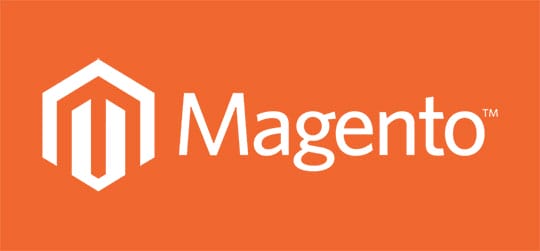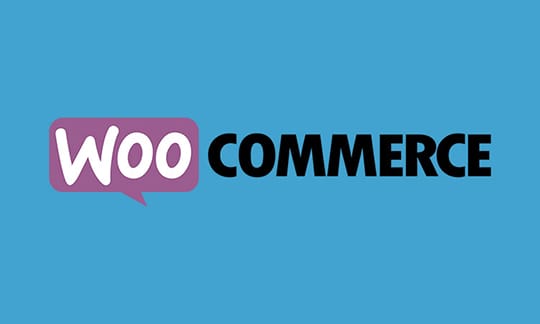An eCommerce store is a must for most online retail businesses today, but with so many free open source platforms and commercial solutions available, is it necessary to pay and which do you choose?
No matter which avenue you go down, it’s not enough to just have an eCommerce store. It needs to be well design and serve both as a marketing tool for your business, as well as a service through which customers can buy your products. Customers need to have the option to pay for them and have them shipped to a location of their choice. User experience is the key and the very best online stores focus on delivering a seamless experience to the customer from the first visit to the checkout page.
Unless you go for an off-the-shelf design, you will often need the support of an eCommerce web development specialist to carry out the initial design and build of your online store. There are many freelancers and agencies available, but not so many who specialize in open source eCommerce development, although this is rapidly changing. For readers who prefer a commercial solution, a simple Google search for any of the platforms mentioned below should return a developer in your area. Just make sure to thoroughly research their projects and client reviews.
eCommerce is changing rapidly. Your future in eCommerce will depend on how you incorporate the latest technologies on your e-store. As David Bryan, the Managing Director of Opace mentioned in his article,
“We’ve got eCommerce, mCommerce (mobile) and tCommerce (smart TVs), all of which work perfectly in conjunction. Soon we’ll have vCommerce, which as we have said, will complement these previous commerces rather than replace them. It will offer businesses a new way to connect and market to their customers, and will ensure that consumers know exactly what they are getting, creating a new level of transparency.”
So, what open source eCommerce platforms are available?

Recommended for you: 5 Alternative Uses of WooCommerce Using These Popular Extensions.
1. Magento Community Edition
Magento is available in two versions – Enterprise and Community. The community version is a free open source eCommerce platform driven by a CMS framework that smaller businesses can use to avail of an excellent eCommerce solution. It is a great out-of-the-box eCommerce package that comes complete with its own SEO tools, catalog management, marketing features, and reporting systems along with a CMS.

Many Magento features available on the enterprise version are available for free in this edition. There are some differences though. The enterprise version handles larger volumes and logistics well. It is therefore used by larger businesses that require these advanced features and functionalities. The enterprise version typically integrates well with call center software and a help desk to assist customers with their shopping. The free edition, on the other hand, has a number of great features that make it a great choice for small businesses and mid-size retailers.
2. WordPress
Interestingly, WordPress started life as software for blogs and the landing page for many default themes features posts, which are cataloged by date. However, as WordPress grew to become one of the most popular open-source CMS platforms in the market for web development and eCommerce solutions as well. That said, WordPress is not strictly an eCommerce platform, it’s a very flexible CMS platform that has eCommerce plugins available. More on this in the next section.

WordPress is clearly the market leader in CMS powered websites and can be found on 32.1% of websites across the world, including non-CMS ones. A survey of all CMS-powered websites found that WordPress has a stranglehold on the market with a 59.5% market share in this category. The platform features a robust PHP framework and has many eCommerce tools that can be easily integrated. WordPress integrates with WooCommerce, a great third-party eCommerce solution. Free and paid themes are today available on WordPress with complete WooCommerce integration, including integration with Stripe and PayPal that make it a great eCommerce engine.
3. WooCommerce

As mentioned, WooCommerce is a WordPress plugin. The WooCommerce website claims that they have over 53 million downloads and that the platform powers over 28% of online stores across the world. Indeed, it integrates with a variety of services using extensions which range from accounting packages like Sage Pay, market survey experts like MailChimp and payment service providers like Stripe. WooCommerce is actually built on WordPress and features a modular system that allows users to easily build enhancements into their stores. Since it is an open-source platform, developers can modify and customize whatever they want, giving them complete control and the option to make it highly scalable by adding unlimited products and users.
Apart from unrestricted customization of thousands of themes, WooCommerce features categories, tags, and attributes that make it easy for customers to find the product you want. The CMS is robust and allows businesses to publish great content that helps them link with their customers and drive traffic to the website. WooCommerce has 41% overall market share in the eCommerce industry making them one of the top contenders in the business.
4. Drupal Commerce

Drupal also has a popular open-source eCommerce platform. The eCommerce segment – Drupal Commerce is easy to use, flexible and SEO friendly. With great similarity to Joomla and WordPress, Drupal is a popular open-source CMS platform built on the PHP framework. It is licensed under GPL and offers users a great web solution for building their eCommerce stores. There are plenty of third-party add-ons, which provide additional power to an eCommerce store built on Drupal. The platform also offers enhanced content management options and integrates well with content published on Drupal. Well-known retailers like Lush can be found on Drupal along with a host of other well-known companies like Gartner and Videotron. HG Data has published statistics that show Drupal commerce to have over a million companies on their eCommerce solution.
5. OpenCart

OpenCart, another open-source eCommerce solution is popular with small businesses that have a team of one or two people. The point is, OpenCart is extremely simple to use, fast loading with plenty of extensions and themes. It has powerful store management features and boasts of 13,000+ modules and themes that can be tweaked and adapted to suit the requirements of your eCommerce website. The platform benefits from community support from over 100,000 registered members, as well as dedicated support from the technology team.
6. Prestashop

Prestashop is another popular open-source eCommerce platform that already has an impressive 250,000 stores on the platform. The platform allows users to download a fully hosted version of Prestashop, as well as a DIY one, both of which are free. The interface is very intuitive and it is easy to install and customize the software and set up your store. However, customization is fairly limited in Prestashop and a fully customized store will require the intervention of a professional web development company. Prestashop already works with more than 250 agencies and has in excess of 8000 contributors and over a million community members.
What commercial eCommerce solutions are available?

You may like: Magento Vs Shopify Vs WooCommerce: Which Platform to Choose?
1. Magento Enterprise
The Enterprise Edition of Magento is more or less the same as the Community Edition in terms of its platform, features, and functionality. However, there are many enhanced features which aren’t available on the free version, which add great value and provide a complete solution for large businesses. Apart from handling greater levels of demand and volume, Magento Enterprise provides in-depth CRM analysis, accurate customer segmentation, as well as enhanced campaign management features.
Another big differentiator is the 24 x 7 support provided by the company for clients who use the enterprise edition. The enterprise version comes with something called ‘Magento certified developer support’ that is expensive for businesses to buy, but really worth it if you’re a large retailer. A Magento 2 enterprise edition license starts at $ 22,000 annually. This is the price for retailers who generate yearly revenues of less than $ 1 million. From here onwards, the price goes up based on the revenue generated. So, as you can see, the subscription fee is steep and only worth it if your volumes and revenues are that high. Although it may seem like the prices really high, many clients agree that it’s a small price to pay for the robust architecture and dependable features that come with the software.

Magento has a steep learning curve and even if you purchase the free edition, chances are you’re going to need is an expert developer to help you get your eCommerce store up-and-running. Additional levels of customization, themes, and extensions all costs extra money.
| Magento Enterprise Highlights | |
|---|---|
| User Experience | The personalization of content, accurate search, and navigation that brings up the right results, responsive design that’s mobile commerce friendly, fast checkouts, content management features that are user-friendly. |
| Customer Loyalty Features | Reward points, in-store credit, registration of gifts and wish lists, gift card issuance, recurring and bulk orders. |
| Super-fast deployment | The tech stack is based on a robust PHP framework which aids better customization through a modular code base, easy integration with third-party ERP, CRM and CMS packages via web APIs, automated testing of code with flexible deployment and timely upgrades. |
| Greater performance and scalability – up to 56% faster page load times | Enhanced performance of websites, great scalability – support of multiple databases. |
| Enhanced productivity | Easy to use admin tools, visual merchandiser, timely reports and analytics, efficient management of orders and returns, options for different languages and currencies. |
| Round the clock dedicated support | Account management, technical helpdesk, and security support when you need it. |
2. Shopify

Shopify was released in 2006 as a dedicated platform for eCommerce. A cornerstone of the platform is the easy functionality that users enjoy in creating their own online stores. Storefront themes have a stunning look and feel and are easy to install and integrate with leading payment providers. The pricing scheme, which starts at $29 a month very affordable for small businesses, as well as large retailers in ensuring that customers have a great user experience on their sites. Enhanced catalog management, coupled with an excellent search engine helps customers find the products they want, load them onto the cart and checkout. Since 2012, Shopify has grown in popularity and the award-winning eCommerce solution is now a popular choice for thousands of businesses looking to set up their online stores.
3. BigCommerce

Another contender on the scene is BigCommerce. While the platform has only 80 professional themes, it has enhanced features for product management, order management, and mobile commerce. It is a subscription-based service linked with multiple payment gateways, making it easier for customers to load their carts and pay for their purchases instantly. There is a 15-day trial period and annual pricing plans start at $29.95 a month, competitively priced in league with Shopify. BigCommerce integrates with leading online marketplaces like eBay, Google Shopping and Amazon. This is an excellent attribute which allows retailers to put their products on multiple selling platforms in one go.
4. Squarespace

Squarespace has made a definitive move towards eCommerce with integration for payment service providers like Stripe and PayPal since 2013. What was initially a blog hosting service for the University of Maryland in 2003, has grown into a full-fledged CMS platform that has enhanced functionalities for users. However, a downside is that the service is not for free and Squarespace charges businesses $18 a month as a starter subscription fee, for which it provides an integrated eCommerce store. Like other CMS platforms of its kind, Squarespace has several freemium and premium themes as well as modules and plug-ins that can enhance the functionality of an online store. Additional customization can be built on the platform by using a professional web developer who can build your online store on this platform using HTML 5, CSS and JavaScript.
You may also like: The Big Six of an eCommerce Team – Who You Need to Hire and Why?
Our verdict; the future is bright for open source eCommerce

Over the years, we have seen the rise of open-source platforms for eCommerce, and these solutions have become extremely popular for online businesses. One of the biggest advantages in the field of open source eCommerce is its free availability. They also have a vast array of free and premium plugins available. These open-source eCommerce platforms have made it possible for very small businesses with shoestring budgets to trade online and compete with the larger players. With support across the world, this trend is likely to keep growing, as businesses in developing nations embrace eCommerce and start selling their products and services to the rest of the world.
It is an exciting new frontier and we hope that this article has brought to light some of the leading open source and commercial eCommerce platforms available. With so many options out there, business owners should have no problem creating an online store for their company and selecting an eCommerce platform that suits their requirements. It is simply a cost-benefit analysis of functionality and price.




